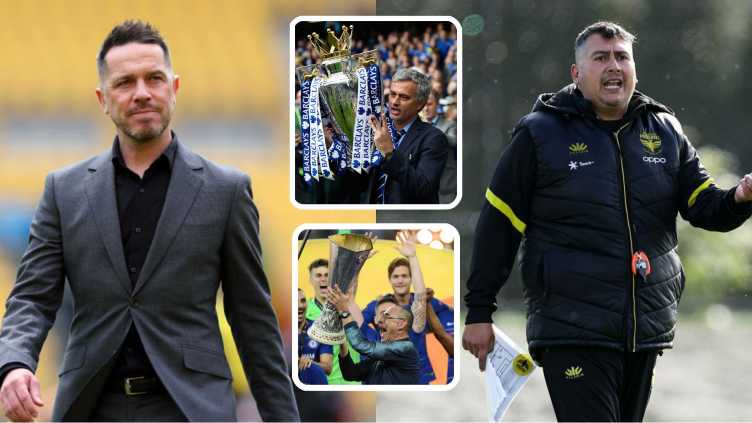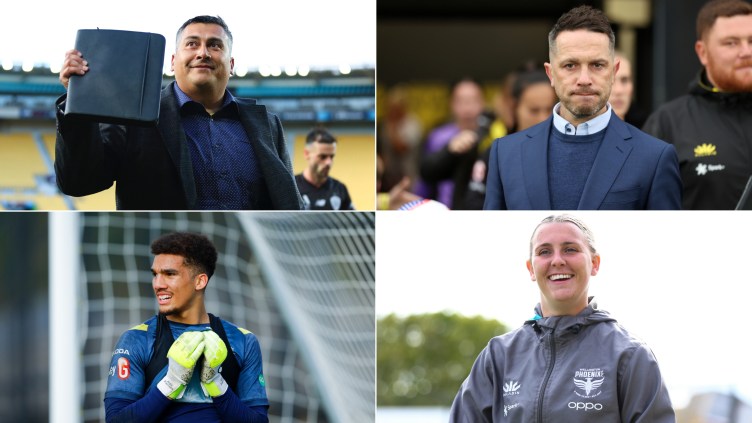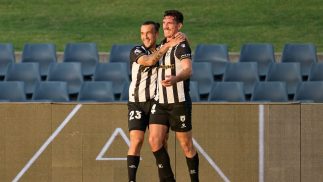Wellington’s award-winning head coaches are at the forefront of a global trend – the bosses who never played pro football.
You could call it the Mourinho Exception – or, for fans of an older vintage, the Sacchi and Wenger Influence.
They were the early and high-profile exceptions to what has long been football coaching’s C-word – credibility, and the idea that a solid and extensive professional playing career is almost a pre-requisite for coaching professional teams at a high level.
Increasingly though that rule is being challenged – not just in countries where football competes in a landscape of broad sporting interest and ideas can hop codes, but also in its heartlands where tradition has a potent grip. As Wellington Phoenix’s two head coaches, Giancarlo Italiano and Paul Temple, are named as Coaches of the Month, they are absolutely at the forefront of a global trend.
As recent research reported in The Times noted, a fifth of managers and head coaches in the English Football League did not have a significant professional playing career in one of the world’s leading leagues.
These are career coaches, specialists who in some cases suffered injury at the outset of a professional playing career and turned to coaching instead, or in others realised that their career trajectory as a coach could go much higher than they could on the pitch.
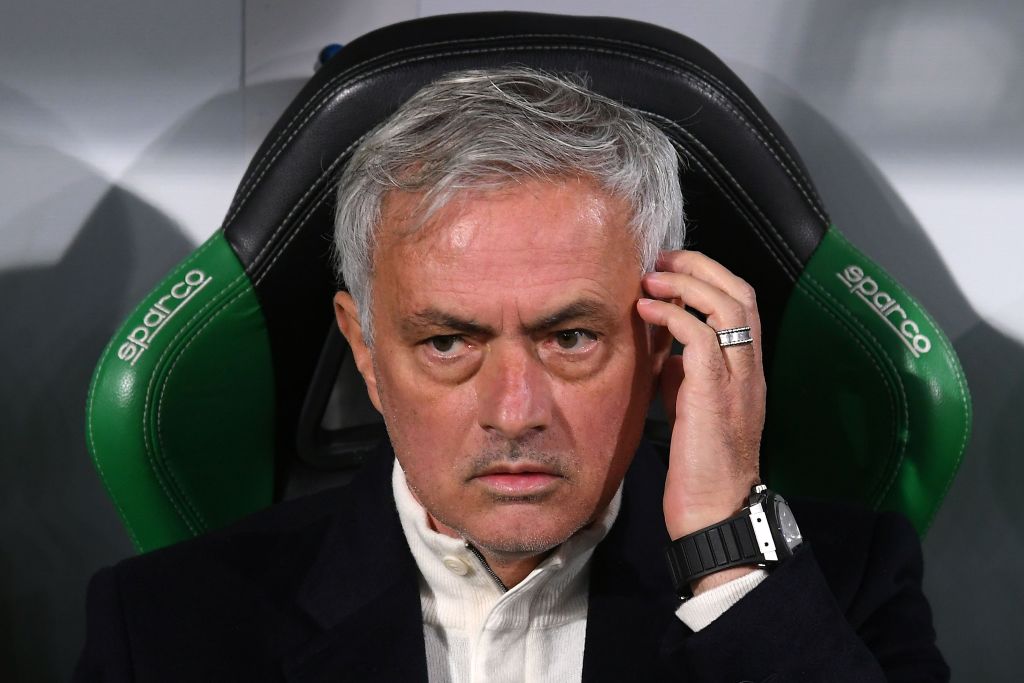
Jose Mourinho was an exception in many ways, employed initially as an interpreter by Sir Bobby Robson at Sporting Lisbon, Porto and Barcelona. He did have some form of playing career, amounting to a few dozen appearances in Portugal’s lower leagues; Arrigo Sacchi was a shoe salesman who coached his local team and rose to the summit of Europe with AC Milan.
But it’s taken until now for the vast majority of clubs at the highest level to change their default thinking on the kind of figure they would employ as their head coach.
AWARD SZN: Phoenix claim October/November clean sweep of A-Leagues gongs
PODCAST: The argument for & against Bruno Fornaroli going to the Asian Cup
‘HEARTBREAKING’: Phoenix defender suffers season-ending injury
The standard career path remains that of the retired professional player looking for the next stage of his career, but examples now appear across the landscape of coaches without that resume: from Steve Cooper, who won the U17 World Cup with England and took Nottingham Forest to the Premier League, to Bob Bradley who three times was MLS Coach of the Year.
It isn’t so much that clubs are looking to a non-playing appointment per se; more that their breadth of consideration is far wider than it used to be.
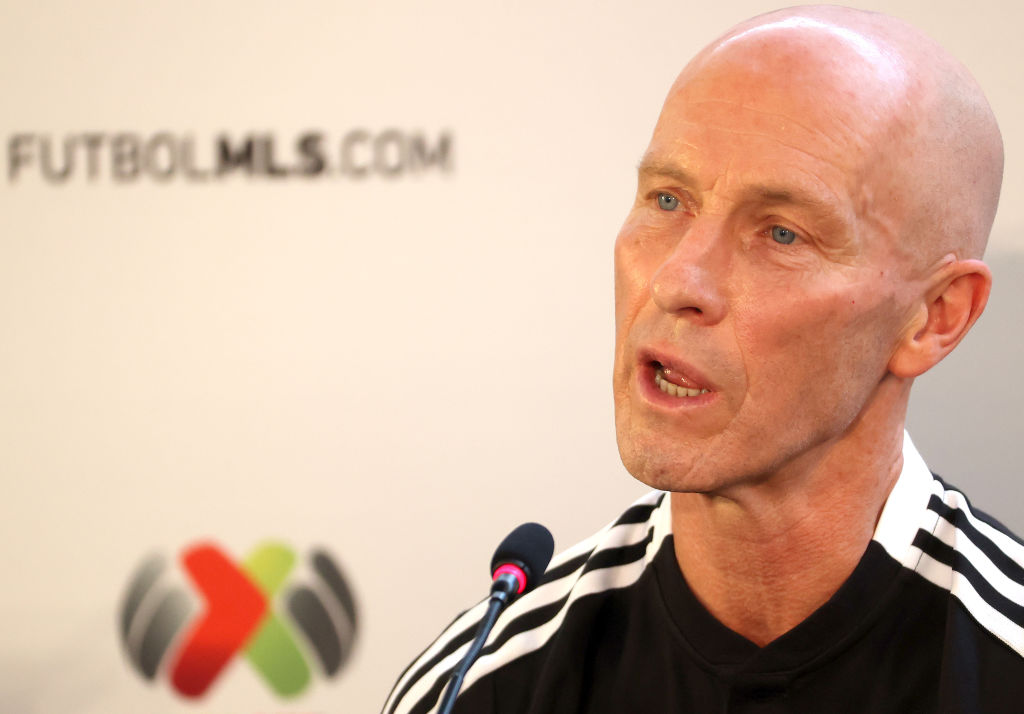
It is a coincidence that the new head coaches of both Wellington Phoenix’s A-Leagues teams, Giancarlo “Chiefy” Italiano and Paul Temple, didn’t have a significant playing career, but that still says everything about the mindset of the club’s executives and board in the off-season as they sought replacements for Ufuk Talay and Natalie Lawrence.
“Their playing career did not enter into our thinking at all – what did enter our thinking was the quality of the person, their history and coaching and what they had achieved,” says Phoenix CEO David Dome. “Because both had been in our organization for a number of years, then we’re obviously very familiar with both them as individuals and with their coaching skills.”
Dome gives short thrift to what was always a circular argument – that top professionals would only respect someone who had been in their shoes directly and therefore could command instant respect in the dressing room.
“If there were players who were questioning Chiefy’s ability to take over the head role, then we would 100% be on the side of our judgment as opposed to whether a player would think he could do the job or not,” he says.
“A player’s ability to assess the quality of a coach can be often be coloured or clouded by their own thoughts around whether they’re going to get selected by that coach or not.
“Whereas we take a much more holistic view in terms of the strategy of the club, where the club’s going in terms of its own football, philosophy and strategies and how that coach fits those, as opposed to whether a particular player would have doubts about the ability of that person to be head coach role.”
All of which seems eminently logical, but for many decades recruitment in football was largely based on gut feel and emotion rather than any dispassionate analysis. The recycling of familiar faces in the lower leagues of England, for instance, defied any evidence that those appointments led to long-term success.
Intruigingly though things are changing in unexpected places.
Millwall’s search for a new manager in the Championship came down to Kevin Muscat, on the back of his trophy-winning success and attacking football in Australia and Japan, and Joe Edwards who was released by Chelsea as a 16-year-old and had garnered academy and assistant coaching experience since, including with England’s junior national teams.
Muscat would have brought a track record of silverware but also credibility with Millwall’s players and fans from his playing days there; in the end, Edwards got the nod.
***
It’s one thing though for enlightened administrators to look beyond the old-fashioned allure of a playing CV. The new wave of coaches don’t all have the bravado of Mourinho, and in some cases have to go through particular experiences to feel on the right path.
Italiano spoke recently to aleagues.com.au about his highly unusual journey from Sunday League coaching to the A-Leagues, but admits part of that journey came with baggage.
“When I got into coaching, I always felt it was definitely a roadblock in terms of… I don’t want to say the word credibility, but there is a certain respect that comes from ex-players coaching.
“So what I found was that I needed to overcompensate in terms of my process and my football knowledge in order to convey the same message and get an improvement or a reaction out of the players.
“But there is a new generation of coaches coming through, I’ve seen it in Germany as well. They’ve gone younger with a more fresh approach.
“I’m Italian by background and someone like (Maurizio) Sarri at Lazio who started in the 10th division and was a banker… I take great interest in his pathway because he had to overcompensate with his mind and he probably plays some of the best attacking football in Europe.”
Certain moments, though, convinced Italiano he was absolutely on the right path – such as in his first season at Wellington, as the first-team analyst, and sitting with Mexican playmaker Ulises Davila to discuss aspects of his game.
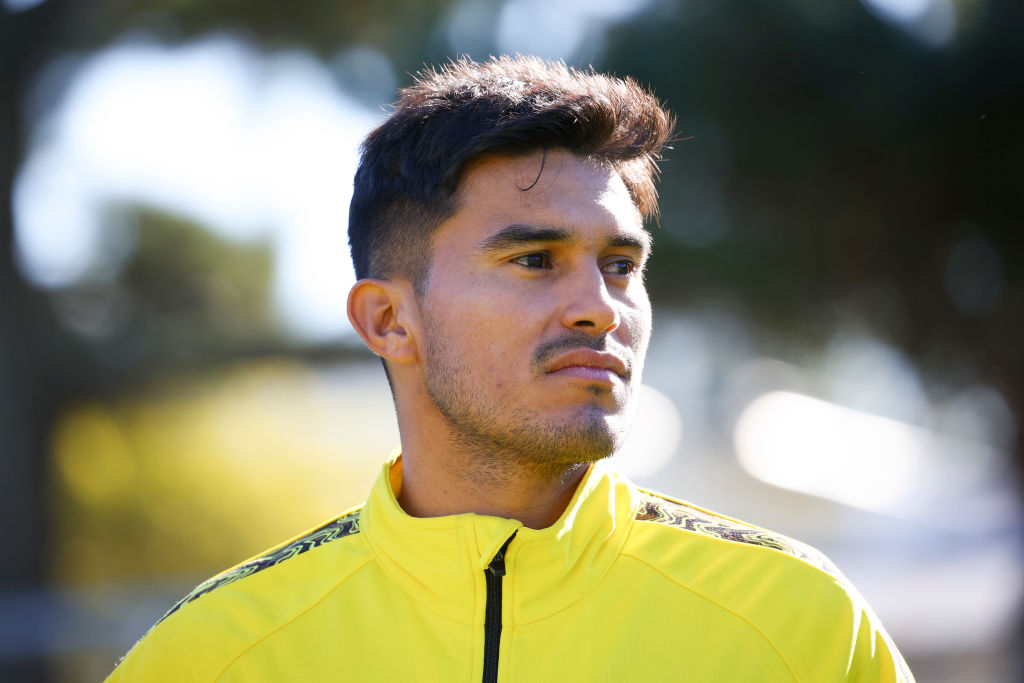
“To be fair when I first started, I didn’t know what was acceptable in terms of what I could convey to players,” he says. “My biggest vote of confidence came with Davila. I just simply used to convey a lot of simple messages with him and he would look for a lot of feedback.
“He took that on board and and I feel like I had a little bit of a part in him flourishing in that first year. That gave me the confidence that if I could do it with him then I can do it with these other players as well.”
When aleagues.com.au speaks to Paul Temple he has just received the news that another of his players has suffered an ACL injury, but has to switch straight into interview mode; precisely the broad spectrum of thinking that the Pro Licence he is in the middle of teaches its students.
But Temple is also strongly honest about the mental hurdles he has had to overcome since aborting plans in his teens to take up the offer of a football scholarship in the US college system, and heading to New Zealand from England instead to begin a coaching career.
His rapid ascent as a coach there took him, among other things, to the U17 World Cup as head coach of the New Zealand team in 2008, opportunities he said would never have happened had he stayed in England.
“The English pathway where I kind of originated from has a lot more options in terms of clubs and academies etc,” he says.
“But generally speaking, the road to the top is really, really tough and the pay is not amazing. Then you’re also battling with a huge amount of ex-professional players that come straight out of the game into coaching and maybe don’t do the same amount of coaching practice in their build up to those kind of roles.
“The New Zealand football coaching system has been really good and a lot of coaches are coming out of that and doing really well. When you look at the other sports as well, the coaching fraternity is really strong.
“When I took the role at the Phoenix in the Academy seven years ago, I came here with the intention of it being a pathway into professional football and ultimately maybe a head coach’s role. Just a like a player, you just want to coach at the highest level you can.
“But at the same time, having not been a professional (player), I think I’m also very aware of the coaching process and what you have to go through.
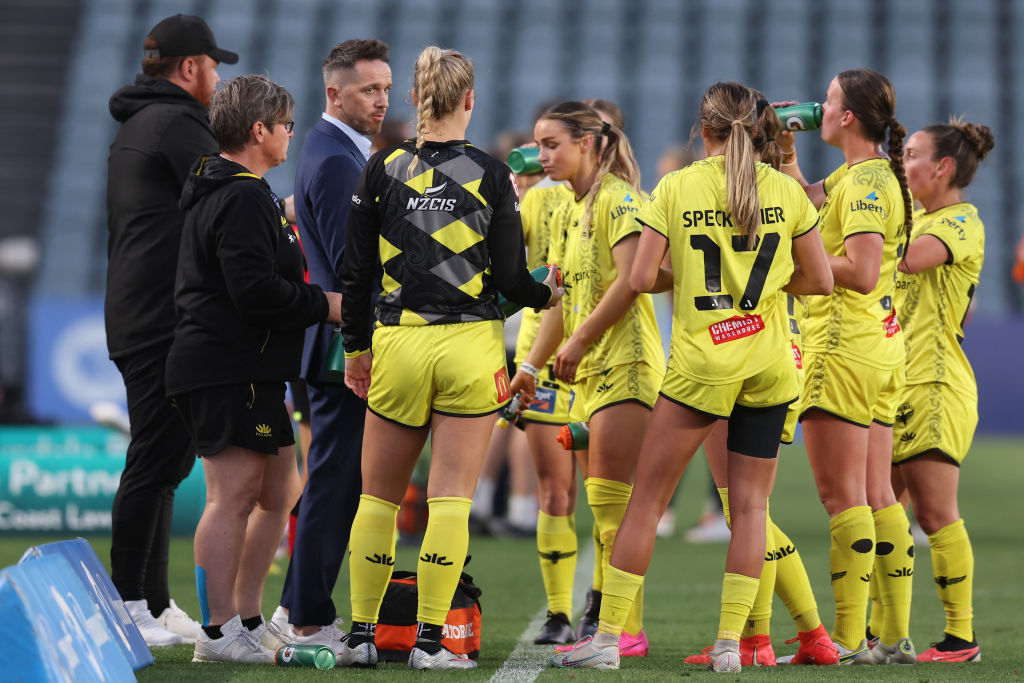
“Having predominantly always been in that youth development space, it’s a big challenge to go into a professional team now where it’s more performance orientated and very much a results driven industry
”What ‘Chiefy’ speaks about is kind of a journey that every coach goes on whose not a professional (player), you feel you have to prove yourself in the game.
“Because the kudos and the credibility comes from playing the game professionally. The ex-professional that decides to go into coaching has credit in the bank, from day one, based on what they’ve done in their playing careers.
“Whereas the more career-driven coaches that haven’t played professionally have to build that credit over time, you don’t just get given it.
“So you’re constantly proving or trying to prove something and sometimes that leads to over coaching, to doing way too much or overthinking stuff. That’s just part of the process that a career coach goes on.”
***
If anything, though, the player-management skills that coaches like Italiano and Temple have had to learn – and the ability to make a player understand why something is important through the quality of their coaching – resonate stronger than ever with new generations of players who expect to be told why they are doing something as much as how to do it.
“The players are probably a little bit more savvy than what they used to be, and with the use of sports science and the technical, tactical side of things, the analysis, there’s so many facets to being a professional coach,” says Phoenix’s head of football, Shaun Gill.
“What you’re actually seeing now is that it’s more about educating players rather than just showing them.
“How do you make them be self guided in their learning? Kids just don’t want to be spoonfed. You need to put them in various environments and challenge them.
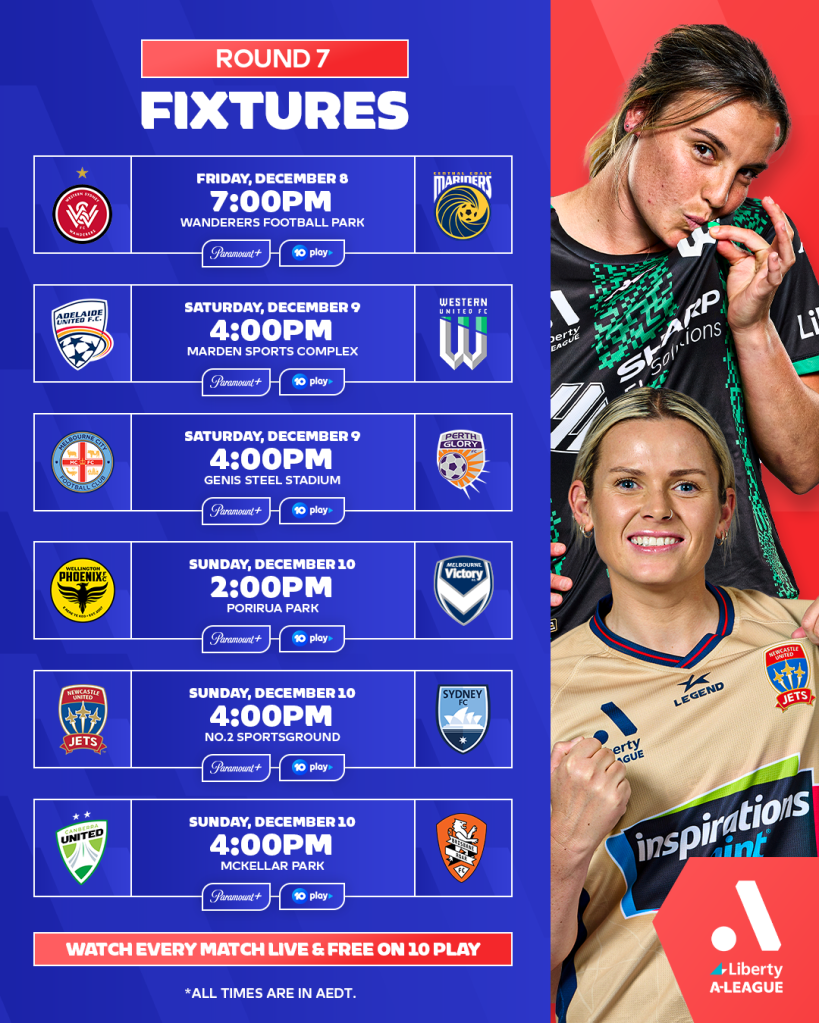
“Even at the professional level, we’re seeing now with Chiefy and the men’s team, there’s a lot more competition, putting them into scenarios that challenge them and make them think.
“It’s not about, I’ll go down the park and show them how to dribble. There’s a real process to how I get my team doing what I want.”

